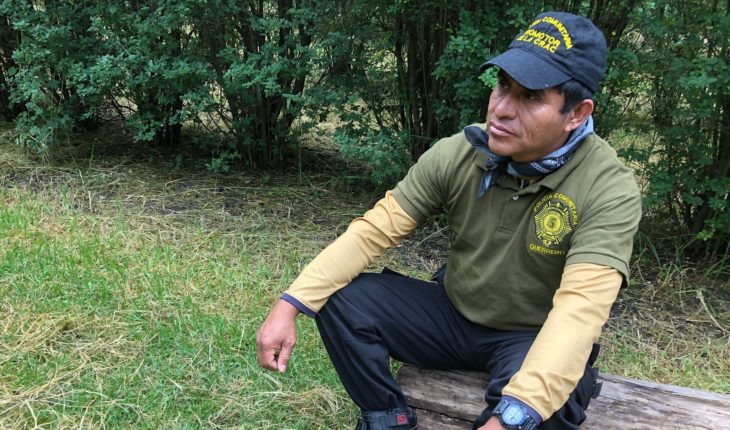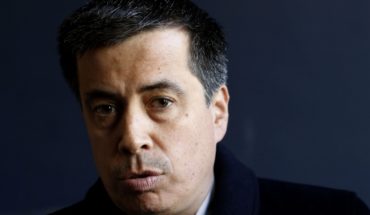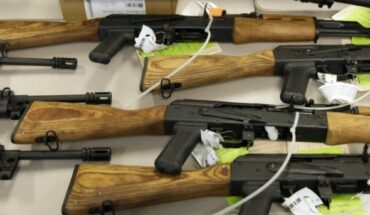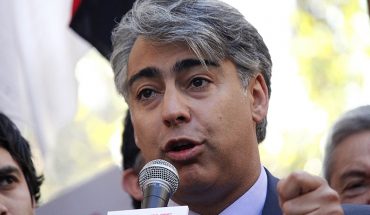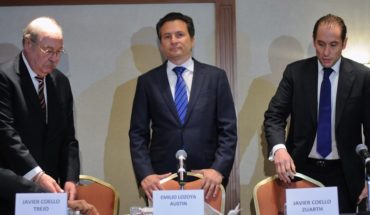“I don’t have to apologize, in any case the government has to apologize to me and my family for the damage they did to us.” Gonzalo Molina González (Matialapa, Tixtla, Guerrero, 1962) spent five years and three months in prison on charges of various crimes that a judge determined he had not committed. Acquitted of all his charges since February 28 of this year, the political express wants to file a lawsuit against the state to be compensated for the time he remained locked up.
“I had five and a half years in prison and I proved that there was no crime, that everything was legal. We don’t owe Gonzalo’s freedom to anyone. There are organizations that say, “We take it out.” But they wanted him to go under the cover, or for the Prosecutor to give up. Others asked me to negotiate. I said no, I was going to go out the legal route. I wanted you to sentence me because I haven’t committed a crime. I didn’t ask for amnesty either. I don’t have to apologize, in any case the government has to apologize to me and my family for the damage they did to us,” he says in an interview with Animal Político.
Read: Warrior’s peasant leader disappears who denounced threats from Tlapa mayor
The lawsuit will be filed with the Attorney General’s Office of the Republic (FGR) and will require compensation to Gonzalo Molina, the withdrawal of apprehension orders against members of the CRAC-EP and the return of the material seized by the police, as reported Enriqueta Chávez, member of the Committee for the Freedom of Political Prisoners of the State of Guerrero.
Gonzalo Molina González is a committed man, one of those with dense and elaborate speech, of those who do not miss a sentence without political burden. He was a spokesperson and promoter of the Regional Coordinator Community Authorities – Community Police (CRAC-PC) when he was arrested at a road side on 6 November 2013.
He was charged with “terrorism, aggravated robbery, deprivation of personal liberty and injury.” For five years he was imprisoned in prisons in Oaxaca, State of Mexico and Guerrero.
On 28 February, the Tixtla-based Joint Trial Court found him not guilty of all his charges and ordered his release.
In recent years, at least 50 CRAC-PC members were arrested and imprisoned, according to Enriqueta Chávez. Nowadays all of them regained their freedom except Julio César Cotecón, which is in the Chilpancingo prison, Guerrero.
You may be interested: Warrior government denies mass kidnapping in Tierra Caliente, Guerrero
There are currently 5 houses of justice operating for 250 communities. However, Chávez acknowledges that the CRAC-EP was “badly damaged” and that it is in a period of restructuring.
In Molina’s view, the open process against him was aimed at weakening community policing.
His account of CRAC-EP, detention, years in prison and the process against him has two aspects, staff and politics.
In personal terms, Molina González accuses the State of having “destroyed his family”. His health has also deteriorated. Isolation in a meter cell per meter and a half is an added punishment. Also the cell moistures in Oaxaca, which caused irreversible health problems. Another danger plus: he had to be locked up with members of criminal groups like Los Rojos, against which he fought in Guerrero. Enemies turned into presidiomates. A time bomb Molina González only recounts the constant threats. “You always carry those kinds of threats but when your ideas are firm there’s nothing to bend you,” he says.
Since he got out of prison, he hasn’t had it easy either. He claims to have faced three attempts to lift up in Mexico City. This is despite being included within the Protection Mechanism for activists and journalists.
Read: Guerrero concentrates 44% of displaced people in Mexico; previous governments neglected the problem
“The mechanism was supposed to be guarding me, that I would have to be under their care. But when I detect these things (the attempts to lift up), I break with the mechanism and shield myself, I protect myself with my own means, getting to lose touch with everyone, even with my family,” she explains.
Animal Político wanted to know the opinion of the mechanism, under the secretariat of the Interior, but at the close of the note it had not received a response.
An example of the insecurity that interests Molina González: the interview takes place in a park in Mexico City, almost in secret. The community cop only feels safe on Guerrero Mountain. “We guarantee security there, there’s no problem,” he argues.
In March, the Community police filed a complaint with the National Commission for Human Rights (CNDH). In it he denounces threats against him and his family by organized crime, he raised suffered by one of his companions eight days before Molina González was out of jail, and “the constant surveillance of falcons and constant combing the area of hitmen who were on the go in vans.”
“I hold the obligatory authorities accountable for providing security and justice to citizens for what happens to me, my family and my colleagues,” the lawsuit states.
Just two weeks after making this complaint, Molina González remained unaccounted for several days after detecting that strangers planned to kidnap him.
In addition to the personal consequences, the community police man stresses the bleak picture he encountered as he got out of prison.
“I go out and crime is positioned in every way. The government destroyed everything we had built as a life project,” he complains.
Find out: The Life of Children in Guerrero Mountain (Photos)
“There is a government strategy, I said before I fell to jail, there is a strategy to destroy the CRAC project. That strategy is co-opting colleagues, so that they obey and demobilize,” he says. In his opinion, those who were visible heads of the movement had three alternatives: death, jail or disappearance.
Molina González’s big concern now is the demobilization he found after being released from prison. Earlier, it emphasizes reclaiming the legitimacy of community policing. “We are legal and legitimate, because we rely on the Constitution, the laws of Guerrero and standards such as Convention 169 of the International Labour Organization (ILO), ratified by Mexico,” he says.
The Community police man puts emphasis on institutional legitimacy. That’s why it sets distances with self-defense groups. “We’re not the same. We are an institution, not products driven by the authorities or by crime itself,” he says.
That’s why your proposal is about comprehensive development, not just security. And it claims funds from the authorities so that it can be carried out. “If governments respected it, it would give itself a budget for our own development, within our own worldview. It’s not a development like governments put it,” he says.
For these reasons he says that he does not trust the government of Andrés Manuel López Obrador. “We never thought there could be a change. I don’t know who believed it. Somehow, we are clear that we are living in a capitalist system and change is not going to be about changing a person. There’s a whole structure,” he says.
As an example, Molina González puts the megaprojects that try to settle in Guerrero, especially the mining initiatives.
“This is a land rich in gold and zinc. And the miners want to get in. You’re fighting for the legal route, which are the protections,” he says.
He gives as an example the case of Carizalillo, in Guerrero. “When the miner enters, it offers them resources for their land, they were told there would be progress… what happened? who paid them six pesos a metre. And when the hitmen, crime, thinks they’re getting a lot of money, it goes and takes away that resource. They run out of nothing, the miner’s working and only hire you about 50 people to clean up the gold. The rest are machine,” he explains.
Alternatively, the community police explain that in recent months he has been dedicated to visiting communities and trying to organize them.
“I want to make a call to the craC’s comrades. Let’s get the batteries on, let’s fight for our rights. That we enforce them and make use of them,” he says
“I am in the mountain region, visiting the villages, the Miztecos, the Tlapanecos, the Nahuas. People need you to be there, to sleep, eat, talk to them. We are producing footwear, guaraches, belts, in communities in Malinaltepec, Citlaltepec and Ayutla,” he explains.
“We are within the legal and legitimate framework,” he says. “We are not a group, we are a legal and legitimate institution.” “The CRAC – PC we are rebuilding the work that destroyed the state, rebuilding the social fabric, and training community policemen where there was no, through a comprehensive project. This project goes beyond weapons. This project is about life, health, education,” he says.
For the time being, the community police man is calling on the state to acknowledge that he was wrongfully imprisoned for five years and three months.
CraC PC we are rebuilding the work that destroyed the state, rebuilding the social fabric, and training community policemen where there was no, through a comprehensive project. This project goes beyond weapons. This project is life, health, education.
What we do in Animal Político requires professional journalists, teamwork, dialogue with readers and something very important: independence. You can help us keep going. Be part of the team.
Subscribe to Animal Politician, receive benefits and support free journalism.#YoSoyAnimal
translated from Spanish: Guerrero community police spokesman to sue the state
November 7, 2019 |
